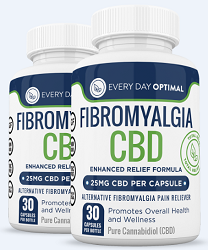
Fibromyalgia is a condition characterized by chronic pain, fatigue, and sleep disturbances. It affects millions of people worldwide, and its exact cause is still unknown. Treatment options for fibromyalgia mainly focus on managing symptoms, and one emerging alternative is the use of CBD, a compound derived from the cannabis plant.
Understanding Fibromyalgia
Fibromyalgia is a complex disorder that affects the central nervous system, particularly the way the brain processes pain signals. People with fibromyalgia experience widespread musculoskeletal pain accompanied by tenderness, fatigue, and cognitive issues sometimes referred to as “fibro fog.”
Although the exact cause of fibromyalgia is unknown, it has been linked to factors such as genetics, infections, physical or emotional trauma, and hormonal imbalances. It predominantly affects women, and symptoms often emerge after a traumatic event or illness.
Treatment Challenges and the Role of CBD
Fibromyalgia presents several challenges when it comes to effective treatment. Conventional therapies such as pain medications, antidepressants, and physical therapy may provide temporary relief, but many patients continue to experience persistent pain and discomfort.
This is where CBD comes into play. CBD, short for cannabidiol, is a non-psychoactive compound derived from the cannabis plant. It has gained significant attention in recent years due to its potential therapeutic effects without the intoxicating effects commonly associated with marijuana.
Mechanisms of Action
CBD interacts with the body’s endocannabinoid system (ECS), which is responsible for maintaining homeostasis and regulating various bodily functions, including pain perception, mood, and sleep. The ECS consists of receptors, enzymes, and endocannabinoids.
When CBD is consumed, it interacts with the ECS receptors, particularly CB1 and CB2 receptors, to produce several potential benefits. CBD has been found to have anti-inflammatory, analgesic (pain-relieving), and anxiolytic (anxiety-reducing) properties, which can be particularly useful for fibromyalgia patients.
Benefits for Fibromyalgia Patients
Fibromyalgia patients often struggle with chronic pain, sleep disturbances, and mood disorders. CBD may offer relief in each of these areas:
Pain Relief
CBD has demonstrated potential as a pain reliever. Studies have shown that CBD can inhibit the transmission of pain signals and reduce inflammation, thereby providing relief for fibromyalgia-related pain.
Improved Sleep
One of the common symptoms of fibromyalgia is disrupted sleep patterns. CBD has been reported to promote better sleep quality and reduce sleep disturbances. By interacting with the ECS, CBD may help regulate sleep-wake cycles.
Reduced Anxiety and Depression
Anxiety and depression often accompany fibromyalgia. CBD has been shown to have anxiolytic and antidepressant effects, potentially improving mood and overall well-being.
Choosing CBD Products
When considering CBD as a potential treatment, it’s essential to choose high-quality products. Look for CBD products that are sourced from organic hemp, undergo third-party testing for purity and potency, and are free from harmful additives.
It’s also crucial to consult with a healthcare professional before incorporating CBD into your fibromyalgia treatment plan. They can help you determine the appropriate dosage and ensure it does not interact negatively with any existing medications you may be taking.
Conclusion
Fibromyalgia is a challenging condition that significantly impacts the daily lives of those affected. While treatment options may be limited, CBD shows promise as a natural alternative for pain relief, improved sleep, and enhanced well-being in fibromyalgia patients.
As research continues to unfold, CBD’s effectiveness for fibromyalgia relief is gaining attention. If you or a loved one is struggling with fibromyalgia, it may be worthwhile to explore the potential benefits of CBD as part of a comprehensive treatment approach with the guidance of a healthcare professional.

